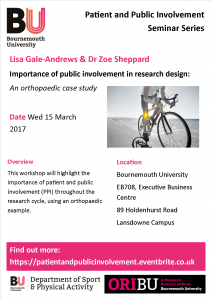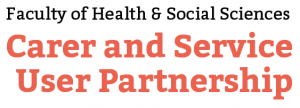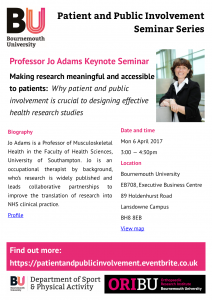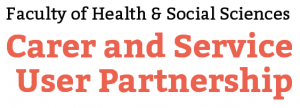The following is a snap-shot of funding opportunities that have been announced. Please follow the links for more information:
Arts and Humanities Research Council
Leadership fellows scheme – early-career researchers
These enable researchers to develop their leadership experience and capabilities as they establish themselves, and to produce innovative research that moves significantly beyond doctoral projects. Grants are worth between £50,000 and £250,000 over a period of between six months and two years.
Maximum Award: £250,000
Closing date: None open call
Collaborative research grants – São Paulo Research Foundation
These enable transitional British and Brazilian teams to carry out collaborative research projects. Grants worth £50,000 to £1 million are available for projects lasting up to 60 months (with a further £1m for Brazilian researchers provided by the São Paolo Research Foundation.
Maximum Award: £1,800,000
Closing date: None open call
COMING SOON: Follow-on funding for impact and engagement scheme: four themes
*** Applications are expected to open at in late January 2017 and to close in April 2017. Call information will be published when applications open. The following information is subject to change.
These encourage innovative applications that seek to explore new, unanticipated pathways to impact which have emerged from projects supported as a part of the following AHRC themes: Science in culture; translating cultures; digital transformations in the arts and humanities; care for the future. Grants are worth up to £100,000 each over 12 months.
Be aware this is a pre-call and there may be further conditions announced in the full call.
Maximum award: £100,000
Closing date: April 2017 (forecast)
Economic and Social Research Council
Research grants
These support individuals or teams to conduct standard research projects, large-scale surveys and other infrastructure projects or methodological developments in any area within the council’s remit. Grants worth between £350,000 and £1 million are available for projects lasting up to five years.
Maximum award: £1,000,000
Closing date: None open call
New investigator grants
These support new researchers and academics at the start of their careers to become independent researchers through gaining experience of managing and leading research projects and teams. Grants ranging from £100,000 to £300,000 fEC are available
Maximum award: £240,000
Closing date: none open call
Engineering and Physical Sciences Research Council
COMING SOON: Healthcare impact partnerships
*** Applications are expected to open in February 2017 and to close in April 2017. Call information will be published when applications open. The following information is subject to change.
This funding supports projects that progress previous EPSRC funded research towards impact within a healthcare application. Proposals must address at least one of the following themes: antimicrobial resistance; novel computational and mathematical sciences; image guided therapies and interventions. The total budget for this call is £5 million.
Be aware this is a pre-call and there may be further conditions announced in the full call.
Maximum award: Not yet known
Closing date: 15 August 2017 (forecast)
Royal Society, GB
Larger Scientific Meetings
*** Applications are expected to open in January 2017 and to close in March 2017. Call information will be published when applications open. The following information is subject to change.
This funding enables scientists to present and discuss ne research in all areas of science at large (80-300) meetings. Meetings will be held from November 2017-March 2018.
Be aware this is a pre-call and there may be further conditions announced in the full call.
Maximum award: Not yet known
Closing date: 30 March 2017 (forecast)
International Exchanges Scheme – China cost-share program
This program stimulates new collaborations within the natural sciences between scientists in the UK and China in a range of scientific areas. Up to £24,000 available for travel and subsistence expenses.
Be aware this is a pre-call and there may be further conditions announced in the full call.
Maximum award: Not yet known
Closing date: 30 March 2017 (forecast)
If you are interested in submitting to any of the above calls you must contact your RKEO Funding Development Officer with adequate notice before the deadline.
For more funding opportunities that are most relevant to you, you can set up your own personalised alerts on Research Professional. If you need help setting these up, just ask your School’s/Faculty’s Funding Development Officer in RKEO or view the recent blog post here.
If thinking of applying, why not add notification of your interest on Research Professional’s record of the bid so that BU colleagues can see your intention to bid and contact you to collaborate.




 community ‘BU: Research and Knowledge Exchange Development Framework’. From here, you can navigate through the pathways (see left hand side of screen) to the Funding from Major Charities pathway to find the session materials.
community ‘BU: Research and Knowledge Exchange Development Framework’. From here, you can navigate through the pathways (see left hand side of screen) to the Funding from Major Charities pathway to find the session materials.

 NERC introduced
NERC introduced  The Engineering and Physical Sciences Research Council (EPSRC), after extensive engagement and dialogue with the research community, have published refreshed research area rationales as part of its Balancing Capability strategy.
The Engineering and Physical Sciences Research Council (EPSRC), after extensive engagement and dialogue with the research community, have published refreshed research area rationales as part of its Balancing Capability strategy.


 I have recently joined the Research and Knowledge Exchange Office (RKEO) as the Research Facilitator for the Faculty of Health and Social Sciences (FHSS) and the Faculty of Science and Technology (FST), covering Jenny Roddis’ maternity leave.
I have recently joined the Research and Knowledge Exchange Office (RKEO) as the Research Facilitator for the Faculty of Health and Social Sciences (FHSS) and the Faculty of Science and Technology (FST), covering Jenny Roddis’ maternity leave. Plans for a new round of Doctoral Training Partnerships (DTPs) have been
Plans for a new round of Doctoral Training Partnerships (DTPs) have been  The following is a snap-shot of funding opportunities that have been announced. Please follow the links for more information:
The following is a snap-shot of funding opportunities that have been announced. Please follow the links for more information: Pre-call announcement
Pre-call announcement he following is a snap-shot of funding opportunities that have been announced. Please follow the links for more information:
he following is a snap-shot of funding opportunities that have been announced. Please follow the links for more information:










 Nursing Research REF Impact in Nepal
Nursing Research REF Impact in Nepal Fourth INRC Symposium: From Clinical Applications to Neuro-Inspired Computation
Fourth INRC Symposium: From Clinical Applications to Neuro-Inspired Computation ESRC Festival of Social Science 2025 – Reflecting back and looking ahead to 2026
ESRC Festival of Social Science 2025 – Reflecting back and looking ahead to 2026 3C Event: Research Culture, Community & Cookies – Tuesday 13 January 10-11am
3C Event: Research Culture, Community & Cookies – Tuesday 13 January 10-11am Dr. Chloe Casey on Sky News
Dr. Chloe Casey on Sky News ECR Funding Open Call: Research Culture & Community Grant – Application Deadline Friday 12 December
ECR Funding Open Call: Research Culture & Community Grant – Application Deadline Friday 12 December MSCA Postdoctoral Fellowships 2025 Call
MSCA Postdoctoral Fellowships 2025 Call ERC Advanced Grant 2025 Webinar
ERC Advanced Grant 2025 Webinar Horizon Europe Work Programme 2025 Published
Horizon Europe Work Programme 2025 Published Update on UKRO services
Update on UKRO services European research project exploring use of ‘virtual twins’ to better manage metabolic associated fatty liver disease
European research project exploring use of ‘virtual twins’ to better manage metabolic associated fatty liver disease